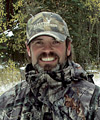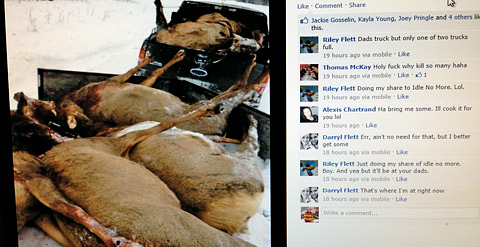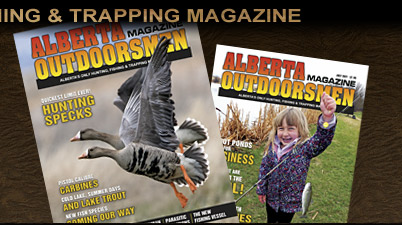|
 |
 |
I have been the editor of the Alberta Outdoorsmen since its inception nearly 15 years ago. During that time, Alberta’s outdoorsmen and women have faced many issues; in fact, it feels like there is a new issue every month that needs to be addressed.
But what amazes me is the number of issues that never seem to go away, especially those that are rights-based. And that includes everything from landowners and leaseholders wanting the right to charge for, or deny access to hunters and anglers, to First Nations and Métis rights for unabated hunting and fishing. Which is what this column is about.
Now, for fear of being labeled a racist, as so often happens because the word is easy to throw out there, I want to say that the issue of rights is also an issue of big game management, and that’s all. So put away your race cards. We are simply going to discuss an issue that took place in Manitoba and how it may affect big game management here in Alberta, should further rights be afforded to the Métis of this province.
 |
| The Facebook page depicting the harvest of 12 elk that caused a maelstrom of racial debate in Manitoba. |
There are three sets of rules when it comes to the harvest of fish and wildlife. There is the set of rules that govern the hunting and fishing community who purchases licences and abides by the limits and seasons set by our provincial fish and game managers, mostly redneck white folk. Then there are the set of rules that our First Nations abide by, a set of rules that is loose at best and with little restriction. And then there is a set of rules that apply to the Métis folk of this province, a set of rules that may soon fall in line with our First Nations.
And while most would love to see one set of rules equal and binding on all, aboriginal harvest rights are guaranteed in the Constitution and not soon to be changed. Unfortunately, laws guaranteeing those rights also create tension between the different user groups, including First Nations opposing the unfettered wants of the Métis.
But the manner in which those rights are exercised is what needs to be addressed, and it is far better to be pro-active rather than re-active when it comes to our resources as history has shown repeatedly.
Not being a Manitoba resident, I can’t speak for their wildlife populations; I can only claim to know what I’ve read. But when well-known Manitoba biologist Dr. Vince Crichton is ringing the bell, somebody ought to listen.
“In Area 14, a few years ago, we had 3000 moose. Today, it’s down to 150 moose by the last survey,” said Crichton, clearly exasperated by what is happening in Manitoba. “And from The Pas to Bissett, the moose population is 95% gone!”
In early January, 12 elk were shot dead near Swan River, Manitoba, lined up, photographed and videoed for posts on Facebook and YouTube. And while the elk killings were determined legal after an investigation, what followed was a racial-induced debate about First Nation and Métis subsistence hunting rights in that province.
Remember, back in September 2012, the Manitoba government granted an estimated 100,000 Métis hunting and fishing rights, on top of an already estimated 140,975 registered First Nation members. This gives Manitoba nearly a quarter million individuals the right to hunt and fish without licence and at all times of the year. Somebody forgot to invite Bullwinkle to that debate.
“We can’t continue to harvest the way we have and expect the resource to be there for future generations. If something isn’t done immediately, there will be no hunting as we know it within 10 years,” worried Crichton.
And it’s Crichton’s concern that has launched a group called “Conservation Now, Not Later”, whose goal is to “convince the government of the need to control the harvest of big game for the future.
“If we don’t act now, elk are going to be in the same position as moose are,” added Crichton. Moose hunting bans were put in place by the Manitoba government in 2011 for the Duck and Porcupine Mountain areas of that province, leading the rights-hunters to focus on the elk herds.
“If it was only those 12 elk that were shot, then fine. But it wasn’t. It’s accumulative,” said Crichton, referring to the ongoing harvest of elk by aboriginal hunters.
“This has to be about the resource. If there is no resource, then what good are rights?”
When the Natural Resources Transfer Agreement was enacted, transferring natural resources from the Dominion of Canada to the provinces, a provision for Indian hunting rights gave the provinces the right to protect game populations by stating, “... the laws respecting game in force in the Province from time to time shall apply to the Indians ...”
Crichton feels the province, along with First Nations and Métis, has to limit how many moose and elk can be harvested each year.
“I’m working with the Fox Lake Cree Nation and they understand there has to be some changes if they want to sustain populations,” said Crichton, hoping others are paying attention as well.
There may be three sets of rules that govern hunting and fishing, but there is only one resource, and that has to come above all others, including the rights-holders.
If we’re going down that road, let’s get it right the first time. ■
For previous Outdoor Pursuits click here.
|
|
|
|


